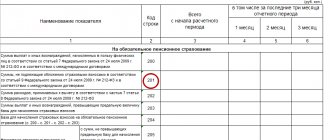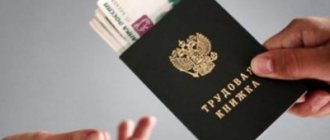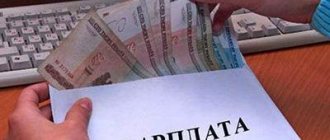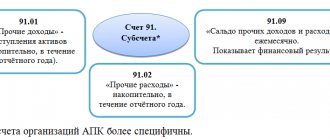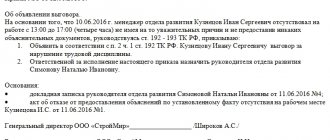Business trip abroad: registration
The package of documents for foreign business trips does not differ from those compiled for trips within the country.
To send an employee on a business trip, the following documents are drawn up:
- A memo addressed to the manager with a request to send the employee on a trip, indicating the place and time. This is not a mandatory document; in some organizations, the decision on a business trip can be made by verbal order of the manager. Compiled in free form.
- An order to be sent on a business trip is issued in a unified form T-9 or T-9a. The order does not make a note that this is a business trip abroad, this is already understandable, since the order form provides a deadline for indicating exactly where the employee is going.
- Advance report - prepared after the employee returns from the trip.
Note! At the moment, a travel certificate and official assignment are not mandatory documents when sent on a business trip.
New standards for daily allowance payments for business trips abroad
On introducing changes to the norms of expenses of organizations for the payment of daily allowances for each day of being on a business trip abroad, within which, when determining the tax base for corporate income tax, such expenses are included in other expenses related to production and sales, provided for by the Decree of the Government of the Russian Federation dated 8 February 2002 No. 93
Decree of the Government of the Russian Federation of May 13, 2005 No. 299
New standards for organizations' expenses for the payment of daily allowances
for each day of travel abroad, within which, when determining the tax base for corporate income tax, such expenses are classified as other expenses associated with production and sales.
These rules are also applied by taxpayers using the simplified taxation system when determining the tax base for a single tax.
New norms
expenses for the payment of daily allowances when sent on a business trip
for a period of up to 60 days
inclusive, taken into account for profit tax purposes,
correspond to the amount of daily allowances paid
for short-term business trips from Russia and other countries, approved by Order of the Ministry of Finance of the Russian Federation dated 02.08.2004 No. 64n
(see No. 33 “A-E” for 2004),
which are applied for the purposes of personal income tax and unified social tax.
New standards apply from January 1, 2006
.
| A country | Norms (US dollars) | |
| when sent on a business trip for up to 60 days inclusive from the Russian Federation and other countries | when sent on a business trip for a period of more than 60 days from the Russian Federation and other countries <*> | |
| Australia | 60 | 42 |
| Austria | 66 | 46 |
| Azerbaijan | 57 | 40 |
| Albania | 67 | 47 |
| Algeria | 65 | 46 |
| Angola | 80 | 56 |
| Andorra | 62 | 43 |
| Antigua and Barbuda | 69 | 48 |
| Argentina | 64 | 45 |
| Armenia | 57 | 40 |
| Afghanistan | 80 | 56 |
| Bahamas | 64 | 45 |
| Bangladesh | 67 | 47 |
| Barbados | 68 | 48 |
| Bahrain | 66 | 47 |
| Belarus | 57 | 40 |
| Belize | 59 | 41 |
| Belgium | 64 | 45 |
| Benin | 66 | 46 |
| Bermuda | 69 | 48 |
| Bulgaria | 55 | 39 |
| Bolivia | 63 | 44 |
| Bosnia and Herzegovina | 60 | 42 |
| Botswana | 64 | 45 |
| Brazil | 58 | 41 |
| Brunei | 57 | 40 |
| Burkina Faso | 72 | 50 |
| Burundi | 74 | 52 |
| Vanuatu | 68 | 48 |
| Great Britain | 69 | 48 |
| Hungary | 61 | 43 |
| Venezuela | 64 | 45 |
| Vietnam | 63 | 44 |
| Gabon | 70 | 49 |
| Haiti | 61 | 43 |
| Guyana | 67 | 47 |
| Gambia | 62 | 43 |
| Ghana | 66 | 46 |
| Guatemala | 68 | 48 |
| Guinea | 66 | 46 |
| Guinea-Bissau | 91 | 64 |
| Germany | 65 | 46 |
| Gibraltar | 69 | 48 |
| Honduras | 75 | 53 |
| Grenada | 92 | 64 |
| Greece | 58 | 41 |
| Georgia | 54 | 38 |
| Denmark | 70 | 49 |
| Djibouti | 75 | 53 |
| Dominican Republic | 59 | 41 |
| Egypt | 60 | 42 |
| Zambia | 68 | 48 |
| French overseas territories | 65 | 46 |
| Zimbabwe | 57 | 40 |
| Israel | 70 | 49 |
| India | 62 | 43 |
| Indonesia | 69 | 48 |
| Jordan | 62 | 43 |
| Iraq | 81 | 57 |
| Iran | 62 | 43 |
| Ireland | 65 | 46 |
| Iceland | 70 | 49 |
| Spain | 62 | 43 |
| Italy | 65 | 46 |
| Yemen | 66 | 46 |
| Cape Verde | 64 | 45 |
| Kazakhstan | 55 | 39 |
| Cayman islands | 69 | 48 |
| Cambodia | 68 | 48 |
| Cameroon | 69 | 48 |
| Canada | 62 | 43 |
| Qatar | 58 | 41 |
| Kenya | 66 | 46 |
| Cyprus | 59 | 41 |
| Kyrgyzstan | 56 | 39 |
| China | 67 | 47 |
| China (Hong Kong) | 67 | 47 |
| China (Taiwan) | 67 | 47 |
| Democratic People's Republic of Korea | 65 | 46 |
| Colombia | 65 | 46 |
| Comoros | 86 | 60 |
| Congo | 85 | 60 |
| Democratic Republic of the Congo | 76 | 53 |
| Costa Rica | 63 | 44 |
| Ivory Coast | 74 | 52 |
| Cuba | 65 | 46 |
| Kuwait | 59 | 41 |
| Laos | 64 | 45 |
| Latvia | 55 | 39 |
| Lesotho | 61 | 43 |
| Liberia | 78 | 55 |
| Lebanon | 73 | 51 |
| Libya | 70 | 49 |
| Lithuania | 57 | 40 |
| Liechtenstein | 71 | 50 |
| Luxembourg | 61 | 43 |
| Mauritius | 63 | 44 |
| Mauritania | 67 | 47 |
| Madagascar | 64 | 45 |
| Macau | 67 | 47 |
| Macedonia | 60 | 42 |
| Malawi | 66 | 46 |
| Malaysia | 60 | 42 |
| Mali | 70 | 49 |
| Maldives | 67 | 47 |
| Malta | 61 | 43 |
| Morocco | 58 | 41 |
| Mexico | 64 | 45 |
| Mozambique | 68 | 48 |
| Moldova | 53 | 37 |
| Monaco | 65 | 46 |
| Mongolia | 59 | 41 |
| Myanmar | 65 | 46 |
| Namibia | 61 | 43 |
| Nauru | 60 | 42 |
| Nepal | 65 | 46 |
| Niger | 78 | 55 |
| Nigeria | 72 | 50 |
| Netherlands | 65 | 46 |
| Nicaragua | 68 | 48 |
| New Zealand | 65 | 46 |
| New Caledonia | 60 | 42 |
| Norway | 79 | 55 |
| United Arab Emirates | 60 | 42 |
| Oman | 62 | 43 |
| Pakistan | 69 | 48 |
| Palau island | 63 | 44 |
| Panama | 64 | 45 |
| Papua New Guinea | 68 | 48 |
| Paraguay | 57 | 40 |
| Peru | 63 | 44 |
| Territory administered by the Palestinian National Authority | 70 | 49 |
| Poland | 56 | 39 |
| Portugal | 61 | 43 |
| Puerto Rico | 72 | 50 |
| Republic of Kiribati | 75 | 52 |
| The Republic of Korea | 66 | 46 |
| Rwanda | 72 | 50 |
| Romania | 56 | 39 |
| Salvador | 68 | 48 |
| Samoa | 64 | 45 |
| San Marino | 65 | 46 |
| Sao Tome and Principe | 74 | 52 |
| Saudi Arabia | 64 | 45 |
| Swaziland | 65 | 46 |
| Seychelles | 71 | 50 |
| Senegal | 70 | 49 |
| Saint Lucia | 69 | 48 |
| Serbia and Montenegro | 60 | 42 |
| Singapore | 61 | 43 |
| Syria | 62 | 43 |
| Slovakia | 59 | 41 |
| Slovenia | 57 | 40 |
| Commonwealth of Dominica | 69 | 48 |
| Solomon islands | 56 | 39 |
| Somalia | 70 | 49 |
| Sudan | 78 | 55 |
| Suriname | 69 | 48 |
| USA | 72 | 50 |
| Sierra Leone | 69 | 48 |
| Tajikistan | 60 | 42 |
| Thailand | 58 | 41 |
| Tanzania | 66 | 46 |
| Togo | 65 | 46 |
| Tonga | 54 | 38 |
| Trinidad and Tobago | 68 | 48 |
| Tunisia | 60 | 42 |
| Turkmenistan | 65 | 46 |
| Türkiye | 64 | 45 |
| Uganda | 65 | 46 |
| Uzbekistan | 59 | 41 |
| Ukraine | 53 | 37 |
| Uruguay | 60 | 42 |
| Fiji | 61 | 43 |
| Philippines | 63 | 44 |
| Finland | 62 | 43 |
| France | 65 | 46 |
| Croatia | 63 | 44 |
| Central African Republic | 90 | 63 |
| Chad | 95 | 67 |
| Czech | 60 | 42 |
| Chile | 63 | 44 |
| Switzerland | 71 | 50 |
| Sweden | 65 | 46 |
| Sri Lanka | 62 | 43 |
| Ecuador | 67 | 47 |
| Equatorial Guinea | 79 | 55 |
| Eritrea | 68 | 48 |
| Estonia | 55 | 39 |
| Ethiopia | 70 | 49 |
| South Africa | 58 | 41 |
| Jamaica | 69 | 48 |
| Japan | 83 | 58 |
———————————
<*> The specified norms also apply when sending on a business trip employees of foreign institutions of the Russian Federation, branches (representative offices) of Russian organizations abroad within the country where the specified foreign institution, branch (representative office) is located, regardless of the duration of the business trip.
Daily allowances for business trips abroad for state employees
The amount of daily allowance for public sector employees is determined by Decree of the Government of the Russian Federation No. 812 of December 26, 2005, Appendix 1. In this document, a certain amount is established for each country, expressed in dollar equivalent. For example, the daily allowance in Kazakhstan is 55 US$.
Below are a few more examples of what daily allowances are for foreign business trips in 2021.
Table
| No. | The name of the country | Daily allowance, $ |
| 1. | Abkhazia | 54 |
| 2. | Republic of Belarus | 57 |
| 3. | Georgia | 54 |
| 4. | Latvia | 55 |
| 5. | Moldova | 53 |
| 6. | Tajikistan | 60 |
| 7. | USA | 72 |
| 8. | Germany | 65 |
| 9. | Great Britain | 69 |
The above amounts apply to all employees of budgetary and government organizations.
Daily allowance for foreign business trips in 2021
The legislation determines that the enterprise sets the amount of daily allowance independently, focusing on its financial capabilities and goals that must be achieved as a result of the trip. When determining the size, you can proceed from the current standards established by the relevant Decree on foreign travel, mandatory for budgetary organizations.
You can also take into account the experience of expenses incurred on business trips to certain countries, which either the company itself or its partners have.
To approve the amount of daily allowance, a business entity fixes a certain amount in its internal regulations, for example, in the Regulations on Business Travel.
In addition, daily allowances for business trips abroad in 2021 have certain standards that must be taken into account when determining the tax base for income tax and when deducting tax to the Pension Fund and the Social Insurance Fund.
Attention! The Tax Code of the Russian Federation establishes daily allowance standards for business trips abroad in the amount of 2,500 rubles for each day of such a trip. This rule should be followed when calculating personal income tax and insurance premiums.
Business trip abroad: daily allowance 2021 for private enterprises
All enterprises that are not budget-funded are allowed to set their own rates of payment for daily expenses when employees travel outside the country.
This value can be set:
- Collective agreement;
- Accounting policy;
- Another local regulatory document of the company.
The amount of payment may vary depending on the circumstances:
- Destinations;
- Duration of the trip;
- Purposes of the trip;
- Positions of the seconded person, etc.
Enterprises can use the amounts established for public sector employees as a basis.
Per diem abroad 2021: calculation nuances
When paying daily allowance to a posted worker, the following nuances must be taken into account:
- the date of crossing the border when traveling to your destination is counted as a business trip abroad.
- The date of crossing the border upon return is taken into account as a regular business trip.
- Daily allowances abroad in 2021 are tax-free only if they do not exceed 2,500 rubles. If their size is larger, then everything above the specified amount is subject to taxation.
- despite the fact that the amounts are indicated in dollars, they can also be paid to the employee in ruble equivalent.
- The exchange rate is taken in the amount established on the last day of the month in which the employee submitted the advance report.
These nuances are important to consider for the correct taxation procedure for an organization and a business traveler.
For example, a business traveler travels by train from Moscow to Helsinki. Departure at 19.15 on October 10 from Moscow and arrival in Helsinki on October 11 at 15.30. Crossing the border at 03.15. Payment will be made for October 10 - 700 rubles, for October 11 - 2500 rubles.
Daily expenses for business trips in 2021: norms and accounting
Daily allowances are exempt from personal income tax and insurance contributions up to 700 rubles. for each day you are on a business trip in the Russian Federation.
Let's give an example. Let’s say an employee was on a business trip for 5 days. He was accrued daily allowance at the rate of 1,000 rubles. per day. The daily allowance was 5,000 rubles (1,000 rubles x 5 days). The amount of 3,500 rubles (700 rubles x 5 days) is exempt from income tax. The accountant included in the tax bases for personal income tax and contributions a daily allowance in the amount of 1,500 rubles (5,000 rubles - 3,500 rubles).
The same rules apply here as for other business trips abroad. But there is one peculiarity: when crossing the border of the Russian Federation, border guards do not put any marks on the international passport. Therefore, the date of crossing the border is determined by travel documents (clause 19 of the Regulations on Business Travel).
The employee went on a business trip to Kazakhstan on May 17, 2021, and returned back on May 21, 2021. The duration of the business trip was 5 days. The employee was accrued daily allowance at the rate of 3,000 rubles. in a day. The daily allowance was 15,000 rubles (3,000 rubles x 5 days).
From the travel documents it follows that on May 17 the employee left Moscow by train at 19:20. The train arrived at the border with Kazakhstan (Petukhovo station) on May 19 at 09:00. This means that the dates May 17 and May 18 are considered days spent in Russia. And the date May 19 - the day of crossing the border - is considered a day spent in Kazakhstan.
The worker returned back on May 21 by plane. Departure from Almaty took place at 15:00, and arrival in Moscow at 22:00. This means that the date May 21st is considered a day spent in Russia.
It turns out that the days spent in Russia are May 17, May 18 and May 21 (a total of 3 days), and the days spent in Kazakhstan are May 19 and May 20 (a total of 2 days).
The following amount is exempt from income tax: for 3 days in Russia - 2,100 rubles (700 rubles x 3 days); for 2 days in Kazakhstan - 5,000 rubles (2,500 rubles x 2 days).
The accountant included in the tax bases for personal income tax and contributions a daily allowance in the amount of 7,900 rubles (15,000 rubles - 2,100 rubles - 5,000 rubles).
Travel expenses are a separate type of expense for an institution that arises when an employee is sent on a business trip. By law, regardless of the purpose of the business trip, the employer is obliged to compensate the employee for the expenses incurred. The composition of expenses that are subject to reimbursement is defined in Art. 168 Labor Code of the Russian Federation:
- travel expenses;
- expenses for renting residential premises;
- additional expenses associated with living outside the place of permanent residence (per diem);
- other expenses incurred by the employee for official purposes with the permission or knowledge of the employer.
Travel expenses are paid to the employee in advance (clause 10 of the Decree of the Government of the Russian Federation of October 13, 2008 No. 749 (hereinafter Resolution No. 749)).

